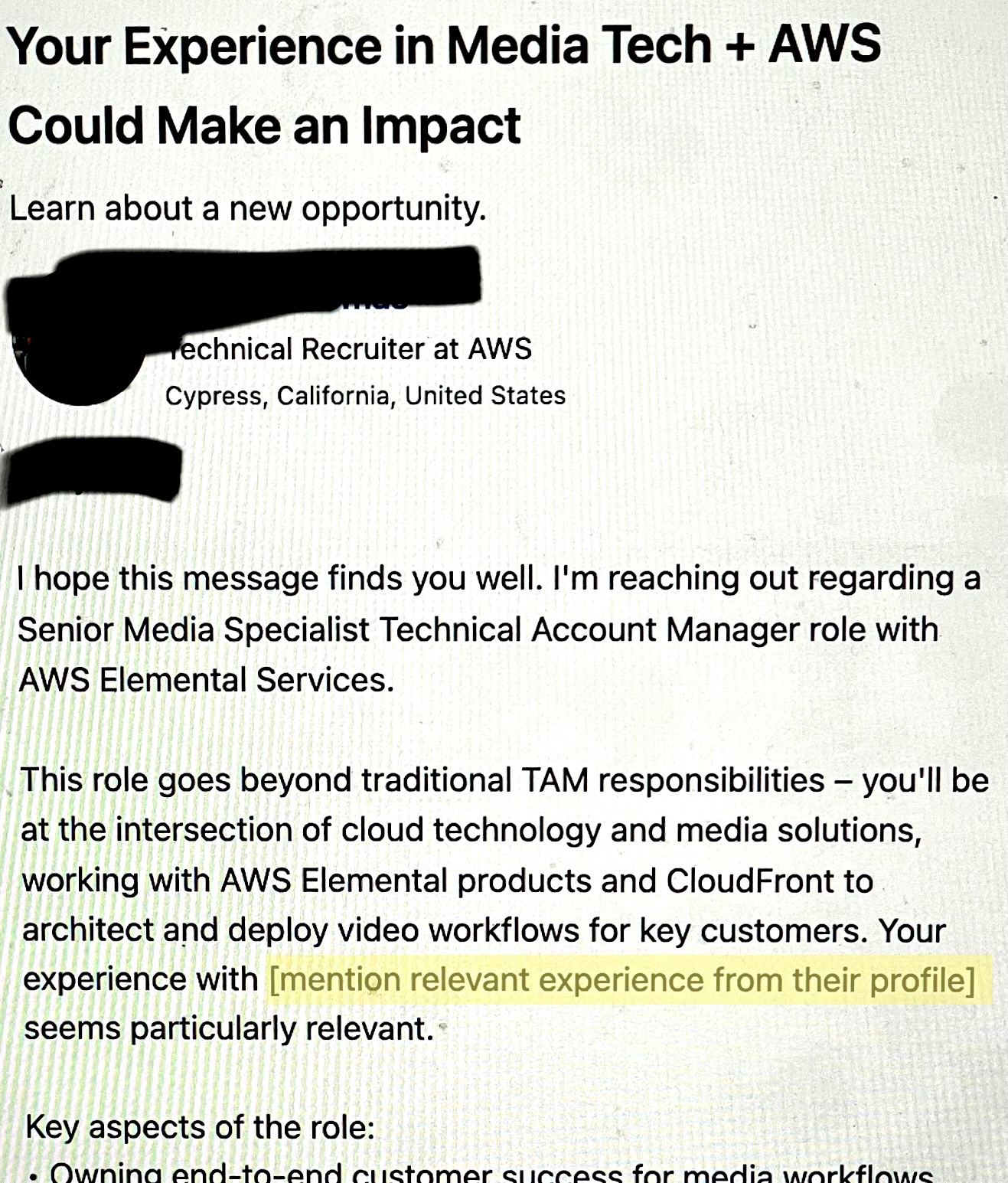We’ve all gotten emails and linked-in requests from recruiters, and sometimes they can feel overwhelming or spammy. However, some day, you may need someone who can help you connect with a job, or, if you become a manager, you might want help hiring people. Recruiters can be great for both those situations — but only the good ones.

Straight-up scammers aside (more below), there are two kinds of recruiters who will reach out to you: the ones who are good at their jobs and the rest. The good ones have looked at your profile and made some rough assessment about your fit for a particular job. If a recruiter is messaging you about a role that has little to no correlation to what you have on your linkedin profile, ignore them. If the recruiter doesn’t personalize the message, or targets you for a Sysadmin or IT job when you are a developer, go ahead and mark that message as spam.
But if a reasonably experienced person might spend two minutes on your profile and think you are a good fit for a particular role, it’s worth taking a moment to respond.
At least in the US, professional recruiters get paid a commission when they place someone. The commission typically amounts to about one month of the salary of the person who’s hired, though I’ve seen other rates.
This system incentivizes recruiters to fill the position, but how they do that depends. A bad recruiter pushes to get a fit as soon as possible with as little work on their part as possible. A good recruiter, on the other hand, meets with the hiring manager and works to understands what the company is looking for. Then they do some pre-vetting so they pass people along only if they think there’s a reasonable chance of a fit.
A classic strategy recruiters use is to pass along 3 matches that vary along some axis, like experience. This can mean a recruiter reaching out to you is less interested in placing you and more interested in using you as a gauge with the employer about what makes a good fit. This is annoying, and the good recruiters do it too, but it usually won’t result in too much of your time wasted.
One thing I like about working with recruiters is that they can help keep moving things along and can provide feedback you wouldn’t get directly from an employer. Sometimes they even have an inside scoop, so if they say “the company is really looking for someone who…” make a mental note because it’s likely something a hiring manager told them and may not be on the JD.
Once a recruiter reaches out to you and you’ve decided they seem like they might be one of the good ones, you probably will want to know more about the role.
It’s normal for recruiters to hide some details, including what company they are hiring for, until they actually talk to you (this is to protect their commission), so they might seem a bit cagey at first. However, they should be able to answer some basic questions, like the industry, location, core requirements, size/stage of the company, title, and compensation range.
If they send a JD and it’s not quite a fit, I take this moment to say something like “It sounds interesting but I don’t have experience in BLAH. Is that a hard requirement for the job?” If it IS a core requirement, asking this question saves everyone a lot of time. If it’s not a core requirement, I’ve been honest and earned a little trust. Sometimes these simple questions can lead to answers that indicate that the recruiter and the hiring manager are not on the same page. In that case, you may want to pass.
Because recruiters are paid by the hiring company, they should never ask you for money. If they do, it’s a sure sign of a scam. Moreover, since they aren’t the ones hiring and paying you, they’ll never ask for too much personal info like your social security number. If you are in software development, you probably have a good spidey sense for when something is a scam, but just in case, here are some signs that the recruiter reaching out may be a scammer (it’s similar to any other list for identifying scammers):
- There’s a strange urgency (“contact us now if interested, we’ve already got lots of candidates!”)
- The message comes via a strange channel (eg text message or facebook)
- Asking for money or personal info, like your social security number. (again, you will never pay a recruiter if you are the one being recruited)